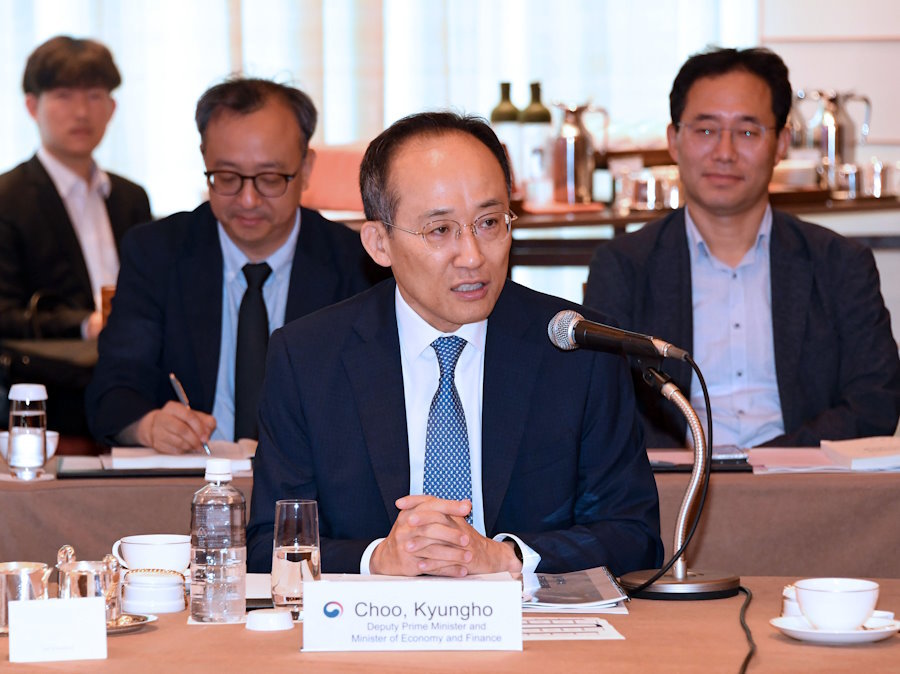Deputy Prime Minister Kyungho Choo presided over the Emergency Ministerial Meeting on Economic Affairs and Meeting on Export and Investment Promotion at the Government Complex-Seoul on June 28 to discuss the economic policy directions for the second half of 2023 and the 4th master plan for the invigoration of food industry.
The following is a summary of DPM Choo’s opening remarks.
[Economic policy Directions for the second half of 2023]
Although inflation is clearly slowing and employment has continued to be strong, the economy is facing headwinds as exports declined due to the aggravation of external conditions in the first half of this year.
Considering some positive signs such as a recent rebound of consumer sentiment and trade deficit reduction, the expectation remains that the economy will perk up in the latter half. However, uncertainties still exist in the every corner of the economy including financial markets or economic circumstances.
In light of the domestic and foreign conditions, the government aims to push for economic policies for the second half of 2023 laying emphasis on four main pillars: the enhancement of economic vitality, stabilization of people’s livelihood, improvement of the fundamental economic structures and expansion of social bedrock against future challenges.
[The 4th master plan for the invigoration of food industry]
The government will strengthen policy support to achieve exports expansion in the agricultural and food sectors up to $15 billion by 2027, which recorded $8.8 billion last year.
First of all, in order to promote the competitiveness of small and medium-sized food companies, laws on nurturing the food technology industry will be enacted within this year and food technology innovation clusters will be designated and fostered from next year, along with the provision of the ESG management consultations.
In addition, the government aims to scale up the number of agricultural and food items whose annual export values are over $100 million, from the current 11 items to 20 items by 2027. To this end, the government will explore promising varieties tailored to export destinations and encourage further expansion of export networks as well as provide active support to boost exports of the Korean traditional food industry.
Lastly, promotional efforts will be strengthened in diverse ways such as utilizing a K-food logo, operating hands-on programs featuring K-content and organizing global gourmet events with renowned chefs.
Source: MOEF


Comments